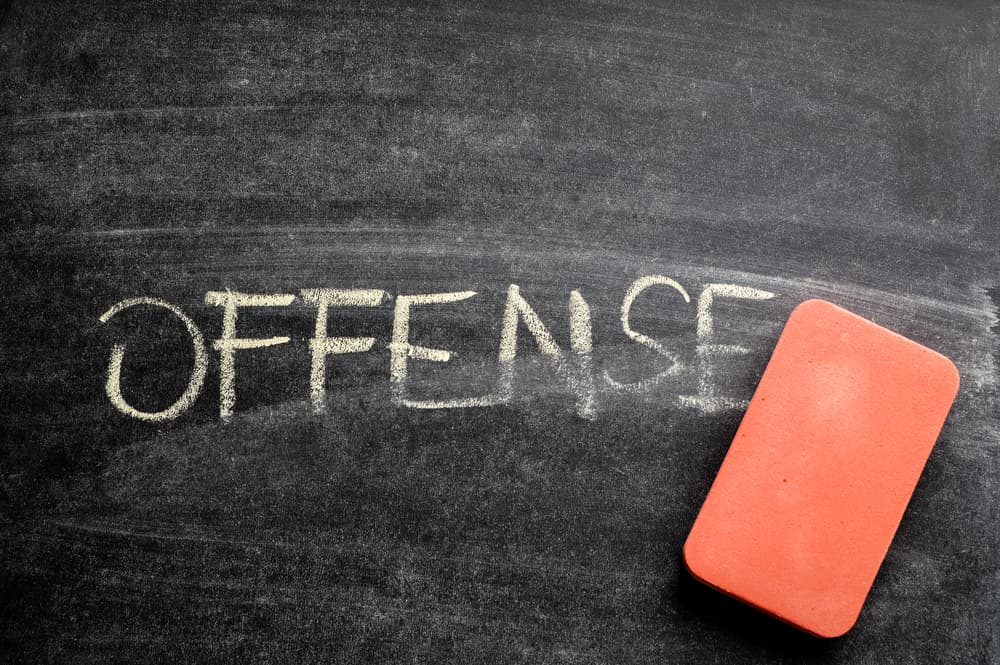Facing a DUI (Driving Under the Influence) charge can feel overwhelming. For many, the possibility of expunging a DUI from their record offers a glimmer of hope—a chance to move forward without the weight of past mistakes.
In this comprehensive guide, we’ll explore the concept of DUI expungement, the factors that influence its possibility, and the steps involved in pursuing this path.
If you’re in need of legal assistance, don’t hesitate to reach out to a DUI Attorney for guidance.
What Is Expungement?

Expungement serves as a pivotal legal remedy for those seeking to distance themselves from past mistakes, particularly those involving criminal convictions such as DUIs (Driving Under the Influence).
This legal process is like an eraser, removing the stain of a conviction from an individual’s criminal history, thereby alleviating the burdens such a record imposes. At its core, expungement offers a fresh start, allowing people to reintegrate into society more fully, unencumbered by the shadow of past legal offenses.
Expungement treats the offense as though it never occurred. For most practical purposes, this means that once a DUI conviction is expunged, it is removed from public records, enabling you to legally assert that the conviction does not exist in many contexts.
This legal cleansing facilitates easier access to employment, as many employers require background checks and often hesitate to hire people with criminal records.
Similarly, securing housing becomes less challenging, as rental applications frequently include queries about criminal history, and an expunged record typically does not need to be disclosed.
Despite its comprehensive coverage, the shield of expungement does have its limits. Certain aspects of your past, even when expunged, can emerge in specific, legally permissible situations.
For instance, when applying for some professional licenses, the regulatory bodies may require the disclosure of all convictions, including those expunged, to assess suitability and integrity for the profession.
Similarly, law enforcement agencies may retain access to expunged records for different purposes, such as evaluating the eligibility for specific positions within the agency or for consideration in future legal proceedings under certain conditions.
Expungement does not equate to universal forgiveness across all legal frameworks. For example, in the context of immigration or when applying for some federal benefits, an expunged conviction might still need to be disclosed and could potentially impact eligibility.
The process of obtaining an expungement is often intricate, requiring a thorough understanding of state laws, meticulous preparation of legal documents, and, in many cases, a compelling presentation in court. For these reasons, it is often best to hire a criminal defense lawyer to start the expungement process for you and determine your eligibility.
The eligibility for expungement is typically contingent upon the nature of the offense, the completion of all sentencing requirements, and the passage of a designated waiting period without further legal incidents. This careful vetting process ensures that expungement is granted to those who have demonstrated genuine rehabilitation and a commitment to leading a law-abiding life.
Expungement represents a critical junction between the legal system’s punitive and rehabilitative aims.
By offering a pathway to remove the enduring penalties associated with a criminal conviction, the legal system acknowledges the possibility of change and the capacity for people to move beyond their past actions. It embodies a societal recognition that individuals are not solely defined by their lowest moments and that redemption is both possible and valued.
Is DUI Expungement Possible?
The short answer is: it depends. The ability to expunge a DUI conviction varies widely based on the laws of the state where the offense occurred.
Some states offer a clear path to expungement for DUI convictions under specific conditions, while others may not allow expungement for DUIs at all. Factors that can influence eligibility include the severity of the offense, whether it was a first-time conviction and the amount of time that has passed since the conviction.
Factors Influencing DUI Expungement
When considering the expungement of a DUI conviction, understanding the factors that influence eligibility and the process can be helpful. These factors determine if expungement is possible and shape the journey you must undertake to achieve it.
Jurisdiction
The laws surrounding DUI expungement are as diverse as the states themselves, each with its unique statutes and regulations. This jurisdictional variability means that the process and possibility of expunging a DUI conviction can vary significantly from one state to another.
In some states, the law may offer a straightforward path for expungement under certain conditions, while in others, the opportunity might be limited or nonexistent. Understanding the specific legal framework of the state where the conviction occurred is the first step in navigating the landscape of DUI expungement.
Severity of the Offense
The nature and severity of the DUI offense play a critical role in determining eligibility for expungement. Typically, first-time offenders with a lower blood alcohol content (BAC) who did not engage in reckless behavior stand a better chance of having their records cleared.
This differentiation is based on the principle that people who have committed a less severe violation are more likely to be deemed low-risk and deserving of a second chance. The law often views these cases through a rehabilitative lens, focusing on the potential for positive change rather than punitive measures alone.
Completion of Sentencing Requirements
Before you can even consider applying for expungement, all sentencing requirements imposed by the court must be fulfilled. This comprehensive completion includes but is not limited to paying any fines, completing community service hours, attending DUI education programs, and successfully finishing any probation periods.
Fulfilling these requirements is not just a matter of legal obligation but also serves as a tangible demonstration of your commitment to rehabilitation and change. It shows the court and society at large that you have taken meaningful steps to rectify their mistakes and are serious about making amends.
Waiting Period
A significant aspect of the DUI expungement process is the waiting period imposed by many states. This waiting period, which starts only after all sentencing requirements have been completed, serves several important functions.
Firstly, it acts as a buffer, allowing time for you to demonstrate a sustained commitment to lawful behavior and rehabilitation. This period is essentially a test of time, designed to prove that you have truly learned from your past actions and are unlikely to reoffend.
Secondly, the waiting period helps to ensure that the court’s decision to expunge a record is made with a comprehensive view of your behavior post-conviction, providing a clearer picture of your character and rehabilitation efforts.
The Process of DUI Expungement
The path to clear a DUI from your record can be intricate and demanding. Understanding the sequential steps involved provides clarity and direction for those seeking to expunge their DUI conviction. Here, we explore each stage of the DUI expungement process in detail.
Eligibility Review
The journey to expungement begins with a thorough eligibility review. This foundational step determines the potential for clearing your record. It involves a detailed examination of your case, including the specifics of the DUI offense, any additional criminal history, and the fulfillment of state-specific legal requirements.
This review assesses various factors, such as the severity of the offense, the presence of prior convictions, and adherence to sentencing requirements, all of which play a pivotal role in establishing eligibility.
Understanding the nuances of state laws is important here, as eligibility criteria can vary significantly across jurisdictions. This step often requires consultation with legal counsel to accurately interpret laws and assess the likelihood of expungement success.
Filing a Petition
Once eligibility is confirmed, the next step involves formally requesting expungement through the filing of a petition with the court. This petition is a document that presents a comprehensive overview of the case, detailing the conviction, the completion of all sentencing requirements, and any other evidence supporting your eligibility for expungement.
Preparing a petition requires meticulous attention to detail and a clear articulation of why the expungement is justified. A lawyer can prepare this petition for you.
This is where your commitment to rehabilitation, evidence of positive contributions to society, and the absence of subsequent legal issues can significantly strengthen the case for expungement. The petition serves as a request for relief and a personal testament to your growth and change.
Court Review and Decision
After the petition is filed, the court undertakes a comprehensive review of the request. This stage involves a detailed examination of the petition and the supporting documents, alongside an evaluation of your behavior since the conviction.
The process may include a hearing, providing an opportunity for you or your legal representative to personally argue the case for expungement before a judge. This hearing is a pivotal moment, allowing for direct interaction with the legal system and the chance to make a compelling case for the erasure of the DUI conviction.
The court’s decision is based on the merits of the petition, the evidence of rehabilitation, and adherence to state laws regarding expungement. The judge’s ruling determines whether the path to clearing your record can proceed.
Completion of Expungement
The successful conclusion of the expungement process is marked by the court issuing an order for the DUI conviction to be expunged. This judicial order initiates the sealing or destruction of the relevant records, effectively removing the conviction from your criminal history for most purposes.
The completion of expungement signifies a fresh start, offering relief from the long-term consequences associated with a DUI conviction. It can profoundly impact various aspects of your life, including employment opportunities, housing applications, and educational pursuits. This final step not only represents the erasure of a past mistake but also symbolizes a legal recognition of personal growth and rehabilitation.
Life After Expungement

Achieving a DUI expungement marks a pivotal moment in your life, offering a profound sense of relief and a fresh start. This legal clearance can change your life trajectory, removing many of the barriers that a criminal record imposes.
The immediate impact of expungement is often felt in areas critical to personal and professional development, such as employment, housing, and education.
For those seeking employment, a DUI expungement can open up a wider range of job opportunities. Many employers conduct background checks as part of their hiring process, and a DUI conviction can be a significant deterrent to offering employment.
Once expunged, the conviction does not need to be disclosed in most situations, allowing you to apply for positions without the fear of being automatically disqualified due to your past. This level of accessibility to various career paths can lead to improved job satisfaction, higher earning potential, and a more stable economic future.
In the housing realm, an expunged DUI conviction removes a common obstacle encountered during the application process. Landlords and property management companies frequently perform criminal background checks on prospective tenants.
A DUI on your record can lead to applications being denied, limiting housing options and complicating the search for a safe and desirable place to live.
Expungement facilitates this process, enabling you to secure housing in your preferred locations without the burden of past mistakes influencing landlords’ decisions.
Educational opportunities also expand significantly after a DUI expungement. Higher education institutions may consider criminal history during the admissions process, and certain convictions can curtail eligibility for financial aid or participation in specific academic programs.
By clearing your record, you can pursue degrees and certifications without the added hurdle of a DUI conviction, opening up new avenues for personal growth and professional development.
Beyond these practical benefits, the psychological impact of DUI expungement cannot be overstated. Living with a criminal record can carry a heavy emotional burden, often accompanied by stigma and shame.
The process of expungement can provide a profound sense of closure, allowing you to truly leave your past mistakes behind and move forward with confidence. It represents a legal acknowledgment of change and personal improvement, reinforcing your commitment to making positive choices.
However, it’s important to recognize that while expungement offers a second chance, it does not erase the past. The experience of being charged with and convicted of a DUI, along with the process of meeting the conditions for expungement, is a journey that leaves lasting impressions.
These experiences can serve as powerful reminders of the consequences of your actions and the importance of responsibility. The opportunity for a fresh start is accompanied by the responsibility to make wise decisions, avoid repeating past mistakes, and contribute positively to your community.
Contact a Criminal Defense Lawyer Today

The path to expunging a DUI conviction is not always easy, but understanding your options is the first step towards clearing your record and rebuilding your life.
While this guide provides a general overview, the specifics of your situation may require professional legal advice from a criminal defense lawyer. Consulting with a lawyer will help clarify and improve your chances of a successful expungement.
Remember, a DUI doesn’t have to define your future. With the right approach and determination, you can move past this chapter and toward a brighter, more promising horizon.


